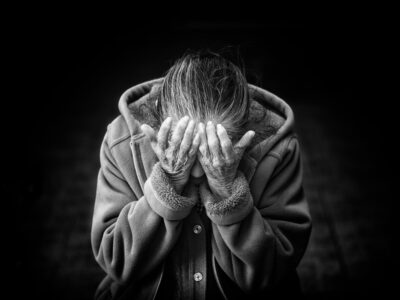Grief is a universal human experience, but for some, the pain of loss becomes a heavy weight that feels impossible to carry. When emotional wounds remain unhealed, many turn to substances to numb the pain, escape reality, or find temporary relief. In Mississippi, where close-knit communities often share deep bonds, loss can ripple through entire families and neighborhoods — and without healthy coping strategies, grief can lead to or worsen substance use.
At Mississippi Drug and Alcohol Treatment Center (MSDATC) in Biloxi, we understand that recovery means addressing not just the physical aspects of addiction, but the emotional and psychological wounds that fuel it. Processing grief is a vital part of that journey.
How Grief Fuels Substance Use
The connection between grief and substance use is complex. For some, drinking or using drugs begins shortly after a loss, providing a momentary escape from sadness, loneliness, or anger. For others already in recovery, grief can be a powerful trigger for relapse.
Unresolved grief can lead to:
- Depression and anxiety that increase vulnerability to substance use.
- Isolation from friends and family, removing key support systems.
- Risk-taking behaviors that can worsen mental health or physical safety.
When grief is ignored or suppressed, the emotions don’t disappear — they often intensify, making it harder to focus on healing and sobriety.
The Importance of Addressing Grief in Recovery
Addiction treatment is most effective when it considers the underlying emotional pain driving substance use. At MSDATC, we help clients recognize grief as a natural response to loss while also teaching healthier ways to process it.
By addressing grief directly, clients are able to:
- Develop tools for emotional regulation.
- Rebuild trust and connection with loved ones.
- Find meaning and purpose after loss.
Treating addiction without acknowledging grief is like patching a roof without fixing the leak underneath — the problem will eventually return.
How MSDATC Helps Clients Heal from Loss
Our approach to grief and substance use combines evidence-based therapy with compassionate, personalized care. In Biloxi, MSDATC offers:
- Individual counseling to explore personal loss in a safe, private setting.
- Group therapy where clients can share their grief journey and feel less alone.
- Family therapy to help rebuild relationships strained by both loss and addiction.
- Holistic wellness programs to support emotional and physical well-being.
We believe that when clients feel supported and understood, they are more willing to engage fully in the recovery process.
The Role of Peer Support in Grief Recovery
Processing grief can feel isolating, but sharing that journey with others who understand can be deeply healing. Group therapy provides a safe space for clients to express emotions without fear of judgment, while also learning from the experiences of others.
Our recovery community emphasizes accountability, encouragement, and empathy. To learn more about how shared experiences strengthen the healing process, explore the benefits of group therapy for social support and accountability.
Integrating Holistic Healing into Grief and Addiction Care
Healing from grief requires more than talk therapy — it involves caring for the whole person. MSDATC incorporates holistic treatments that complement traditional counseling, such as mindfulness, meditation, physical wellness, and creative arts therapy.
These methods help clients reconnect with themselves, manage stress, and find healthy outlets for emotional expression. You can read more about how we use holistic approaches to drug and alcohol treatment in Mississippi to support lasting recovery.
Finding Hope After Loss
It’s important to remember that grief does not have a fixed timeline, and healing is not linear. Some days will feel heavier than others, but with the right tools and support, it is possible to move forward without turning to substances.
At MSDATC, we’ve seen clients transform their grief into a source of strength. By honoring the loss while also focusing on the future, they build new routines, restore relationships, and rediscover purpose in sobriety.
Grief and substance use are deeply intertwined, but recovery is possible when both are addressed with compassion and care. If you or someone you love is struggling to cope with loss and addiction, the team at Mississippi Drug and Alcohol Treatment Center is here to help you heal — connect today.


 Bilingual Addiction Treatment in Mississippi: Bridging Language Barriers to Recovery
Bilingual Addiction Treatment in Mississippi: Bridging Language Barriers to Recovery